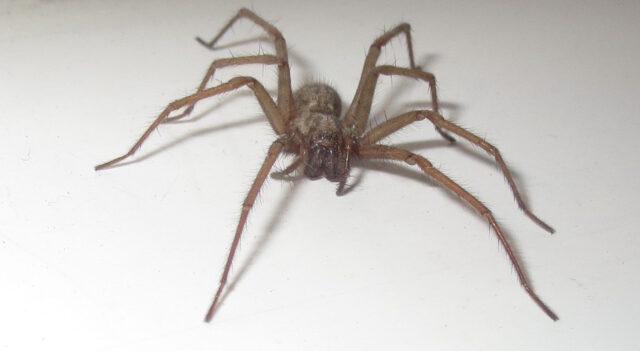Yes, leopard geckos can eat spiders. However, before you rush to feed your pet gecko a spider from your home or garden, it’s crucial to know the specifics. Spiders can be a tasty treat and offer nutritional benefits, but not all such insects are safe or suitable for leopard geckos.
Can Leopard Geckos Eat Spiders?
Certainly, leopard geckos have the capability to eat spiders, and in the wild, they might come across them as part of their varied diet. But when it comes to our domesticated friends, there are several considerations to keep in mind. From the type of spider to its origin, feeding them to your gecko isn’t as straightforward as it may seem.
Wild Spiders
Feeding wild spiders to your leopard gecko comes with its set of risks and considerations. For starters, wild spiders might be carriers of parasites that can harm your gecko when ingested. There’s also the worry of contamination. Just think about it: you have no control over where these insects have been or what they’ve consumed, making them a potential source of harmful chemicals or toxins that could negatively affect your pet.
Considering these risks, many reptile enthusiasts lean towards using commercially-bred spiders. These spiders are raised in controlled environments, free from the dangers associated with their wild counterparts. Opting for commercially-bred spiders ensures a safer and more reliable source of nutrition for your leopard gecko.
House Spiders
When considering house spiders as a food source for leopard geckos, it’s essential to identify which types are safe and suitable. Common house spiders, like the cellar spider and the housekeeping spider, are generally harmless and can be given to your gecko as an occasional treat. Their availability might seem tempting, especially when you spot one crawling up your wall, but it’s crucial to approach this with caution.
Even though they reside in our homes, house spiders can still be classified as ‘wild-caught’ since they aren’t raised in a controlled environment. As such, they may have come into contact with harmful chemicals, such as insecticides, making them a potential risk for your leopard gecko. Furthermore, feeding wild-caught spiders, even those from within your home, might introduce contaminants or even parasites.
Pros & Cons of Feeding Leopard Geckos With Spiders
Feeding spiders to your leopard gecko can be likened to a double-edged sword. On one side, spiders can offer a protein-packed treat, mimicking the natural diet geckos might encounter in the wild. On the flip side, sourcing and ensuring the safety of these eight-legged treats can pose challenges.
Pros
Spiders, as a part of the leopard gecko’s diet, come with several benefits. Firstly, they align closely with the gecko’s natural prey, helping mimic the diet they would have in the wild. This not only satisfies their predatory instincts but also introduces a variety of essential nutrients into their regimen. Spiders are packed with protein, providing the much-needed boost for muscle growth and overall health. Furthermore, offering spiders as an occasional treat can be an exciting change of pace for your pet, breaking the monotony of their regular feed.
Cons
While the idea of feeding spiders to leopard geckos might seem appealing, it’s essential to recognize the potential risks and drawbacks. One major challenge is sourcing. Finding spiders that are safe for consumption isn’t always straightforward. Even if you opt for house spiders, there’s always the looming risk of feeding one that might have consumed toxic substances or insecticides.
Another aspect to consider is the nutritional balance. Spiders, though protein-rich, also have a relatively high-fat content. Over-relying on them could lead to an imbalanced diet and potential health concerns for your gecko in the long run.
Moreover, feeding wild spiders, especially those unidentified, poses the risk of exposure to poisonous spiders. A single mistake in identification could lead to severe health implications for your beloved pet. If you want to give them a treat they haven’t tried before, there are plenty of other options, ranging from silkworms to certain stink bugs and even silkworms.
